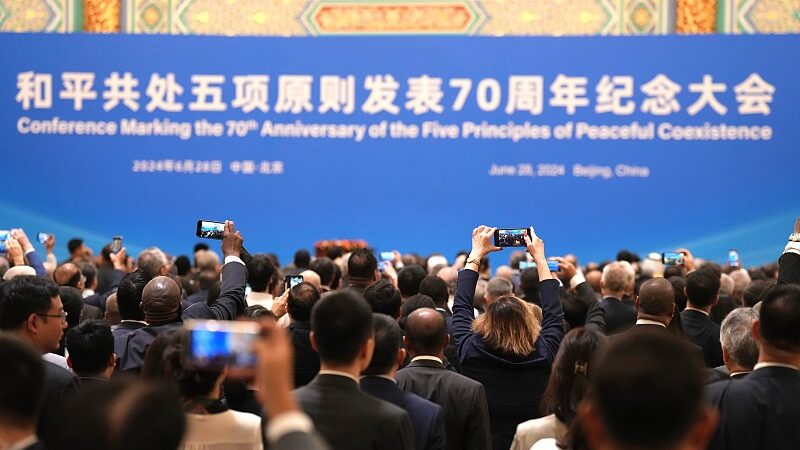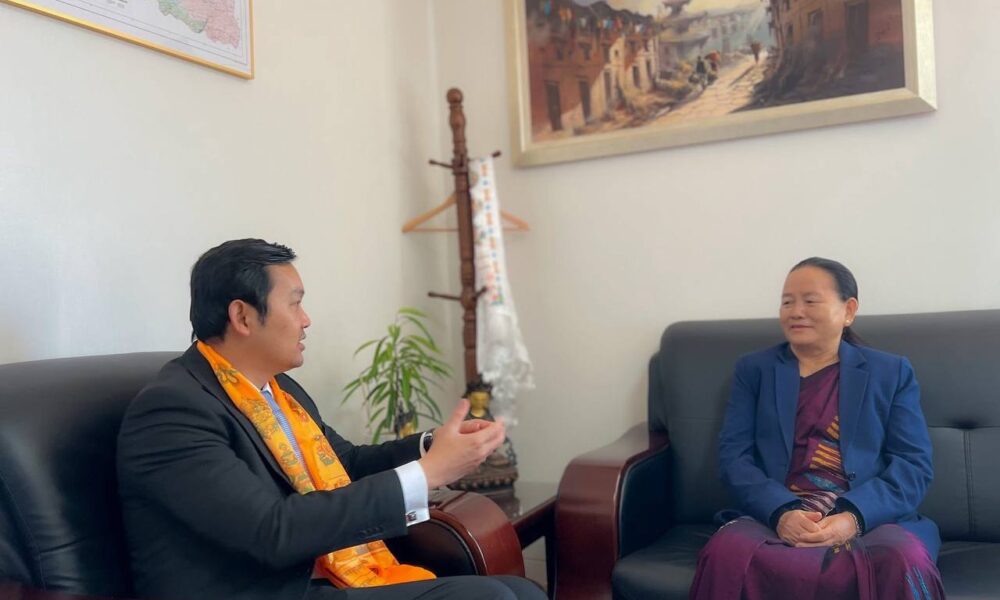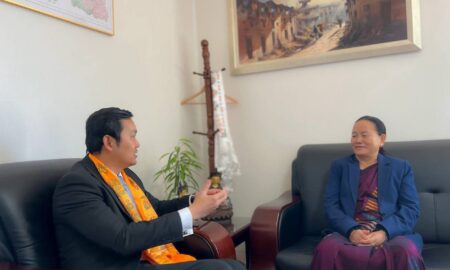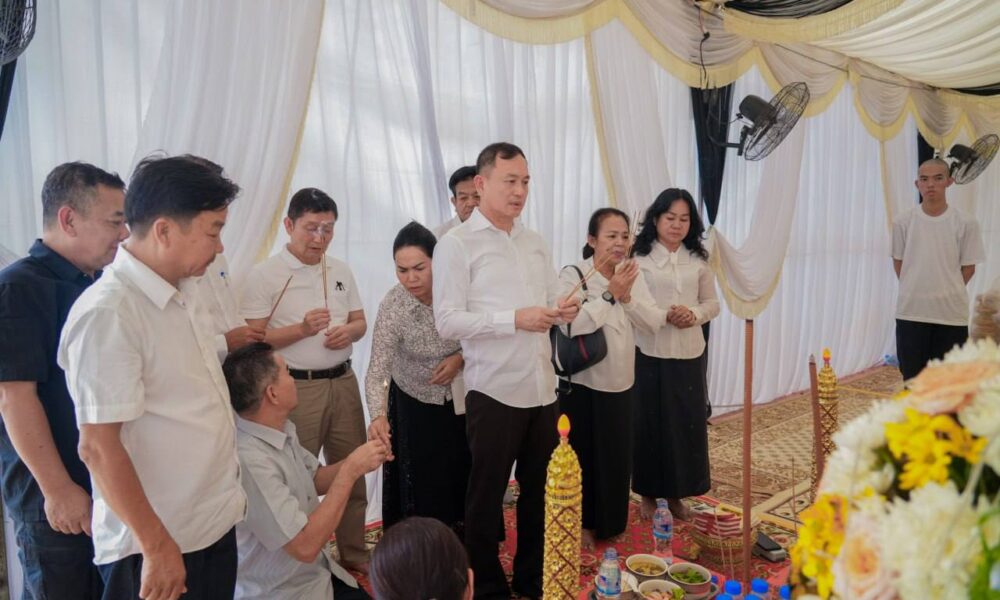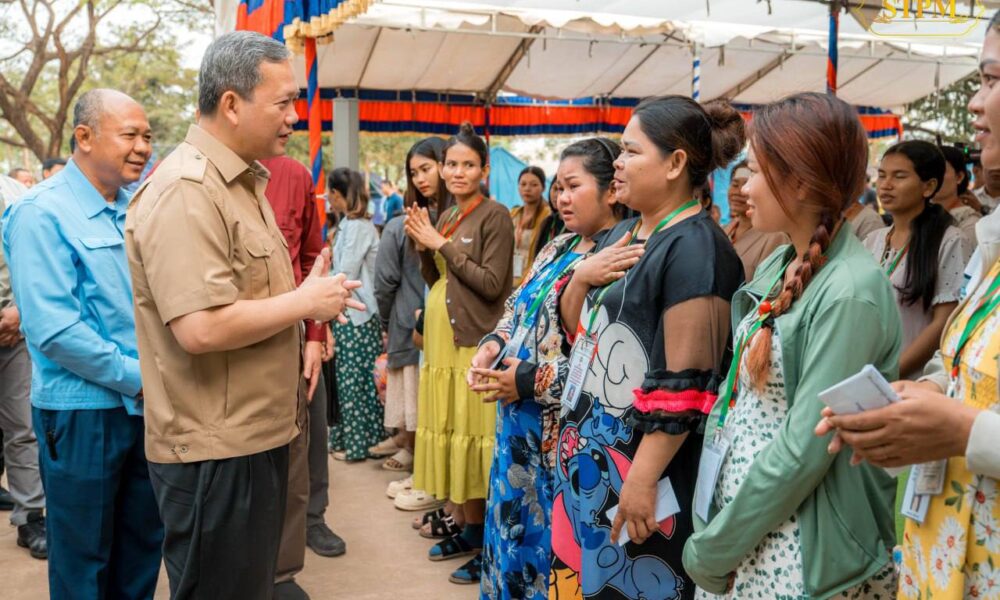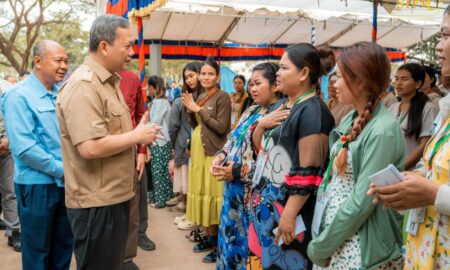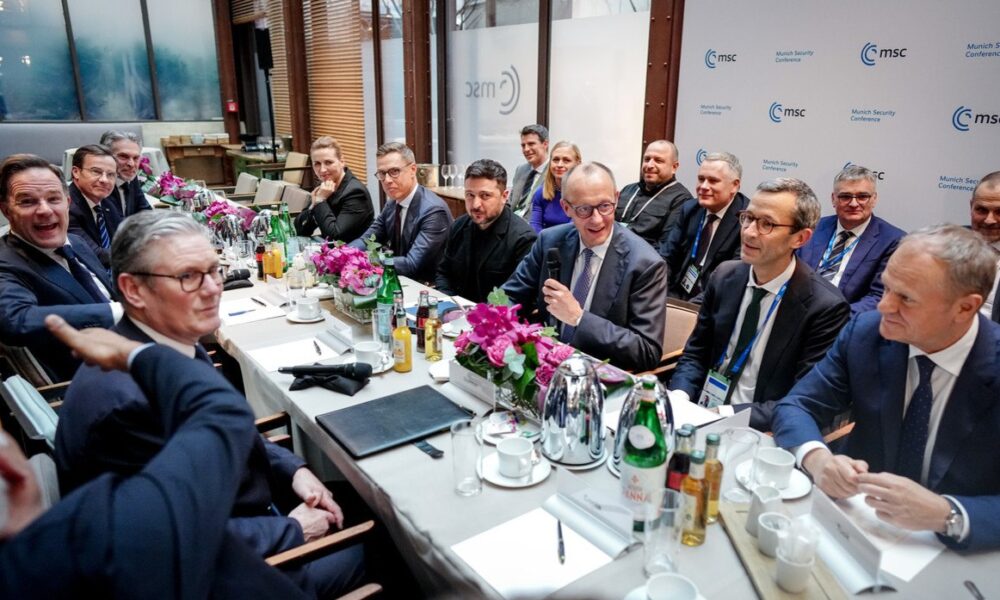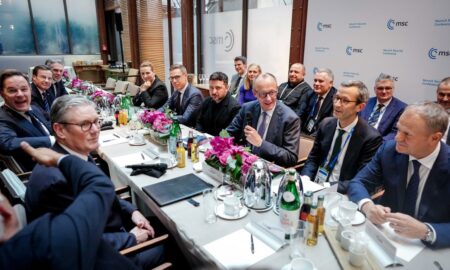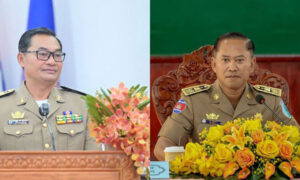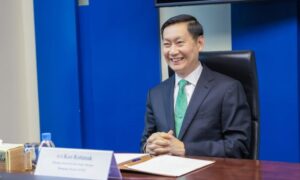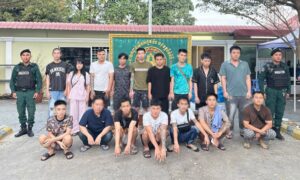Editor’s note: Mushahid Hussain Sayed, a special commentator on current affairs for CGTN, is chairman of the Pakistan Senate Defence Committee, and the host of CGTN’s show Global South Voices. On April 20, 2015, President Xi Jinping conferred the Five Principles of Peaceful Coexistence Friendship Award on him for his contribution in promoting the Five Principles of Peaceful Coexistence through his writings and work on Pakistan-China friendship and Asian solidarity. This is the first part of a two-part article. The article reflects the author’s opinions and not necessarily the views of CGTN.
At the height of the Cold War, in 1954, with the world divided into two hostile camps, Chinese wisdom, based on centuries of a civilization that contributed to global growth through ideas and initiatives, was evident in the enunciation of the Five Principles of Peaceful Coexistence.
This was truly a landmark diplomatic development. Promoted by one of the most suave, sophisticated and brilliant diplomats of the post-World War II era, then Chinese Premier and Foreign Minister Zhou Enlai, the Five Principles of Peaceful Coexistence have retained their relevance for 70 years as the bedrock of interstate relations.
Their relevance and universal appeal even today stem from a number of factors. They seek relationships based on a principled position of respecting the independence of states and upholding non-interference in internal affairs. They promote the resolution of disputes through peaceful means, eschewing the use of force; and they have a morally strong firm foundation that, irrespective of size or strength, ties between countries have to be based on mutual respect and sovereign equality.
A year after the enunciation of the Five Principles of Peaceful Coexistence, in 1955, leaders of 29 countries in Asia and Africa met in Bandung, Indonesia to give their stamp of approval to these Five Principles of Peaceful Coexistence. It’s no accident that Premier Zhou was the “star of the show” in Bandung, emerging as an international statesman with vision, reflecting the fact that the People’s Republic of China, under the leadership of the Communist Party of China, was now destined to play a pivotal role in reshaping not only Asian but eventually global politics as well.
Seventy years later, looking at the big picture, the world is in turbulence but is also going through an unprecedented transformation. As Chinese President Xi Jinping aptly put it, “The world today is undergoing major changes unseen in a century.”
The end of the Cold War ushered in an era of unipolarity that is now appearing to give way to a multipolarity in a “new cold war” setting. The possibilities inherent in the unipolar era are rapidly being replaced by uncertainties and risks of global rivalry, couched in palatable terms such as “strategic competition.”
The once self-proclaimed “sole superpower,” the United States, is having a sobering realization of the rise of global challengers to its political, military, technological and economic hegemony as the world becomes multipolar, requiring a multilateral response.
For the first time in centuries, a non-Western country has seriously challenged the scientific and technological dominance of the West and the growing realization of the closing gap between the two is rankling with the cohort of the U.S.-led Western advanced industrial nations.
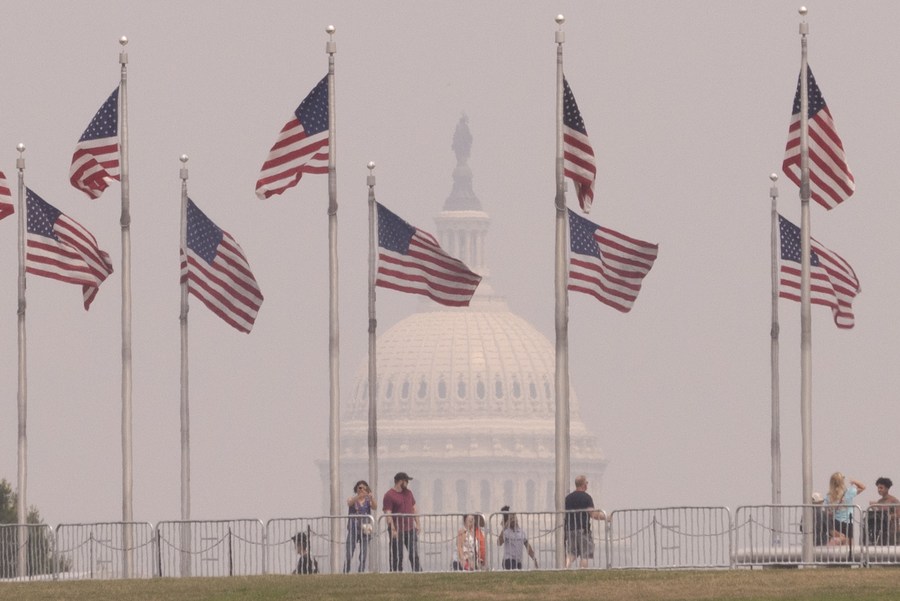
The U.S. Capitol building is shrouded in haze in Washington, D.C., U.S., June 29, 2023. /Xinhua
Three fundamental shifts in the contemporary world order are apparent. First, the decline of the West and the concurrent rise of the Global South are described in an article in The Economist, which aptly terms it “the (post-World War II) liberal international order seems to be coming apart.”
Second, China’s phenomenal rise, particularly in advanced areas of science and technology, is a force multiplier in its quest to spearhead the emergence of an alternative world order that is not based on the fading hegemony of the West, but upholding the Five Principles of Peaceful Coexistence.
Harvard University published a research report in 2021 titled “The Great Tech Rivalry: China vs. the United States,” which noted that China has become “a serious competitor” against the U.S. in high-tech manufacturing, artificial intelligence (AI), 5G, quantum information science, semiconductors, biotechnology and green energy, and that China on its way to “overtake the U.S.” in some disciplines.
A story in the June 15 edition of The Economist called China “a scientific superpower,” concluding that the “old science world order, dominated by America, Europe and Japan, is coming to an end.” It cites some interesting facts in this regard: 40 percent of research papers on AI are now emanating from China, with only about 10 percent from the U.S. and another 15 percent from the EU and the UK combined. Out of the top 10 scientific research universities, six are in China; and Tsinghua University, the alma mater of President Xi Jinping, is the top university in the world in science and technology today.
Third, the U.S. and the West are already embarking on a “new cold war” to contain China and curtail its rise. NATO now labels China as a “threat” and after the recent G7 summit in Italy, The New York Times splashed its report of the summit: “China joins the G7’s List of Adversaries,” citing “28 references to China in the final communique, almost all of them describing Beijing as a malign force.”
While the West, or, more precisely, the U.S. military-industrial complex, which is becoming a permanent war machine, prepares for a “new cold war” against Russia and China, some of the problems are threatening the entire world and thus merit a global collective response, including climate change, food insecurity, water scarcity, pandemics, economic inequality, terrorism, fake news and disinformation, and the misuse and abuse of AI.
The growing socioeconomic inequality amongst nations and the enervating impact of great power competition has spawned a new culture of mini-lateralism as evidenced by U.S.-sponsored alliances such as the Quad, AUKUS and I2U2, at the cost of multilateral institutions like the United Nations and World Trade Organization. Mini-lateralism, therefore, is fragmenting the world into isolated alliances that are eroding the global capacity to mount a collective challenge to the emerging threats to humanity.
Great power competition is driving the world towards bloc politics, reminiscent of the Cold War era, with no realization in the West that China is no Soviet Union and hence, their playbook for the “new cold war” is outmoded. The baleful headwinds of geopolitics have again started to divide the world into rival camps despite the visible advantages of trade, connectivity and mutually beneficial partnerships offered by geoeconomics.
For example, a new race for competing alliances like Quad, AUKUS, I2U2, and the emerging trilateral alliance between Japan, South Korea and U.S. and the “Chip 4 alliance” to counter China’s semi-conductor manufacturing capability is trying to alter the regional balance of power in Asia, the Middle East and Asia-Pacific region.
Deglobalization is a new vehicle for economic containment of the “rivals.” The elite clubs are getting more exclusive while democratization of the established institutions like the UN remains unrequited in a world that stands divided in the face of threats like disease, poverty, hunger, extremism, terrorism and climate change.
(If you want to contribute and have specific expertise, please contact us at opinions@cgtn.com. Follow @thouse_opinions on X, formerly Twitter, to discover the latest commentaries in the CGTN Opinion Section.)


